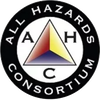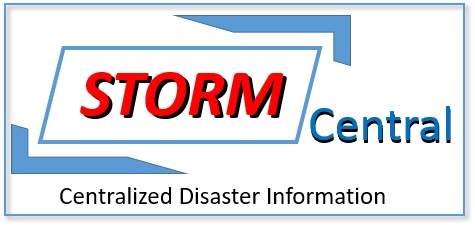|
The AHC is a state sanctioned 501c3 non-profit organization focused on expediting getting communities and businesses back to business following any type of disaster... Resilience.
The All Hazards Consortium (AHC) exists to create a new approach to sharing sensitive operational information to enhance its government and industry decision making. The AHC's legal and policy based trust framework addresses complex, persistent public/private security and disaster related issues in disaster management, business continuity and cyber security. The AHC engages its 15,000+ government and industry stakeholders in programs and working groups that address important issues:
The AHC's working groups, partnerships and operational solutions provide national reach across multiple critical infrastructure sectors and states. For more information on the AHC, please click here. Announcements
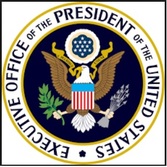
Policy - New Presidential Policy Directive (PPD-41) on US Cyber Incident Coordination
This Presidential Policy Directive (PPD) sets forth principles governing the Federal Government's response to any cyber incident, whether involving government or private sector entities. Full document: ....CLICK HERE 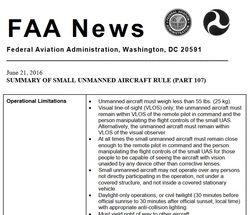
Policy - FAA releases new regulations for drone usage
The Federal Aviation Administration on Tuesday (6/21/2016) released new regulations covering the use of unmanned aerial systems, or drones. Full Report....CLICK HERE 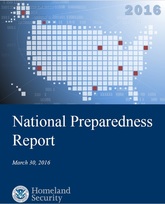
FEMA Releases 5th National Preparedness Report
The 2016 report identifies 37 key findings across the Prevention, Protection, Mitigation, Response, and Recovery mission areas describing the progress made during 2015 to advance national preparedness. The NPR also identified the following core capabilities as national areas for improvement: cybersecurity, economic recovery, housing, infrastructure systems, natural and cultural resources, and supply chain integrity and security. Each of these core capabilities were challenged differently across the Nation. Full Report....CLICK HERE 
New LinkedIn Group Forming:
Drones/UAVs for Industry & Government Operational Use With the growing opportunities and concerns around the use of Unmanned Aerial Vehicles (UAVs), Unmanned Aerial systems (UAS) or Drones across the United States, organizations in both government and the private sector are working to better understand and utilize this emerging technology to: - address day-to-day operational issues and sector use cases - deter threats from bad characters - create better policy and processes - leverage experiences & best practices & investments in the future. OBJECTIVES: 1) To develop a shared perspective in industry and government on this developing UAV/UAS/Drone technology 2) To better understand current capabilities and policy 3) To prepare and respond to threats 4) To share best practices 5) To improve operational coordination and reduce inefficiencies 6) To gather recommendations and idea for operational improvements LinkedIn Group Info:https://www.linkedin.com/groups/Drones-UAVs-Industry-Government-Operational-8515880/about 
Small Business Expertise Sought to Help Solve Homeland Security Challenges
Washington D.C. — The Department of Homeland Security (DHS) has announced it is seeking proposals from small businesses to address technical challenges in homeland security. Beginning December 16, 2015, DHS will accept proposals for its upcoming Small Business Innovation Research (SBIR) Program FY 16.1 joint solicitation which covers 13 technical areas from two DHS organizations, the Science and Technology Directorate (S&T) and the Domestic Nuclear Detection Office (DNDO). “It is vitally important that we cast a wide net to find highly innovative solutions to the Nation’s homeland security challenges,” said DHS Under Secretary for Science and Technology Dr. Reginald Brothers. “We know that America’s small businesses are creative problem solvers and engines of innovation and we want to hear from them. We encourage eligible, U.S. small businesses to explore the topic areas presented in this funding opportunity and submit proposals that capture their best thinking. We are particularly interested in receiving proposals from under-represented groups, such as women-owned small businesses and socially and economically disadvantaged small businesses.” To Learn More... CLICK HERE 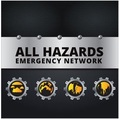 On iTunes Now On iTunes Now
The AHC is on iTunes
The AHC along with its partner the All Hazards Emergency Network have partnered on a series of podcast interviews. The All Hazards Emergency Network (AHEN) was created to allow Public and Private Sector Emergency Management stakeholders to share their insights, ideas and best practices. To Learn more click here. AHC In the News

Hughes to Provide Data Services for All Hazards Consortium Published Hughes Network Systems has signed up to provide data sharing services for the All Hazards Consortium to help disseminate real-time information to disaster managers, emergency response leaders and first responders in cooperation. Learn More... Recent Products and Publications
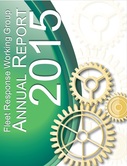
NEW 2015 Fleet Response Working Group Annual Report
The leadership of the AHC's Multi-State Fleet Response Working Group (FRWG), along with its partners from the All Hazards Consortium, the Edison Electric Institute, and the members of the 2016 FRWG Executive Steering Committee would like to announce the release of their Annual Report for calendar year 2015. Learn More & Download 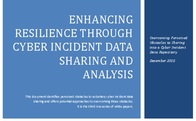
DHS NPPD Cyber Incident Data and Analysis Working Group (CIDAWG) Report
Since 2012, the Department of Homeland Security’s (DHS) National Protection and Programs Directorate (NPPD) has been engaging a diverse group of private and public sector cybersecurity stakeholders – including insurers, Chief Information Security Officers (CISOs), Chief Security Officers (CSOs), risk managers, critical infrastructure owners, and social scientists – to examine the current state of the cybersecurity insurance market and how to best advance its capacity to incentivize better cyber risk management. This White Paper on Overcoming Perceived Obstacles to Sharing into a Cyber Incident Data Repository is the third in the CIDAWG’s white paper series. It identifies eight such obstacles, possible approaches for addressing them, and the stakeholders who should be engaged to begin the work of doing so. |
EVENTS
STORM Central
INFORMATION SHARING
|
- Home
-
STORM Central
- ELLIOTT DEC 2022
- Ian Sept 2022
- LANDON FEB 2022
- IZZY Jan 2022
- NICHOLAS Sep 2021
- IDA Aug 2021
- HENRI Aug 2021
- FRED Aug 2021
- ELSA July 2021
- Tabitha / Uri / Viola Feb 2021
- ETA Nov 2020
- ZETA Oct 2020
- DELTA Oct 2020
- SALLY Sept 2020
- LAURA AUG 2020
- MARCO AUG 2020
- ISAIAS July 2020
- Spring Storm April 2020
- Corona Virus March 2020
- Hurricane DORIAN Aug 2019
- Tropical Storm BARRY July 2019
- ULMER 3/14/2019
- HARPER 1/18/2019
- DIEGO 12/7/2018
- CA Wild Fires
- MICHAEL 10/7/2018
- FLORENCE 9/9/2018
- GORDAN 9/2018
- FEMA Exercise May 2018
- TOBY 3/20/2018
- QUINN 3/6/2018
- RILEY 3/3/2018
- Puerto Rico Fleet Movement
- Winter Storm 1/16/2018
- Wind Storm Oct 30 2017
- NATE 10/6/2017
- MARIA 9/20/2017
- IRMA 9/1/2017
- HARVEY 8/25/2017
- CATEX 2017 Exercise
- FEMA Exercise 5/2/2017
- STELLA 3/14/2017
- JUPITER 1/14/2017
- FORTIS 12/29/2016
- Pipeline Incident 10-31-2016
- Mathew 10/3/2016
- Pipeline 9/20/2016
- Julia 9/15/2016
- Hermine 9/1/2016
- Invest 99L 8/25/2016
- COLIN 6/7/2016
- Heat Wave/Storms 7/24/2016
- PETROS 2/25/2016
- LEXI 2/5/2016
- JONAS 1/21/2016
- JOAQUIN 10/1/2015
- Reports
- Initiatives
- Join Us
2024 All Hazards Consortium. All Rights Reserved. Privacy Statement
